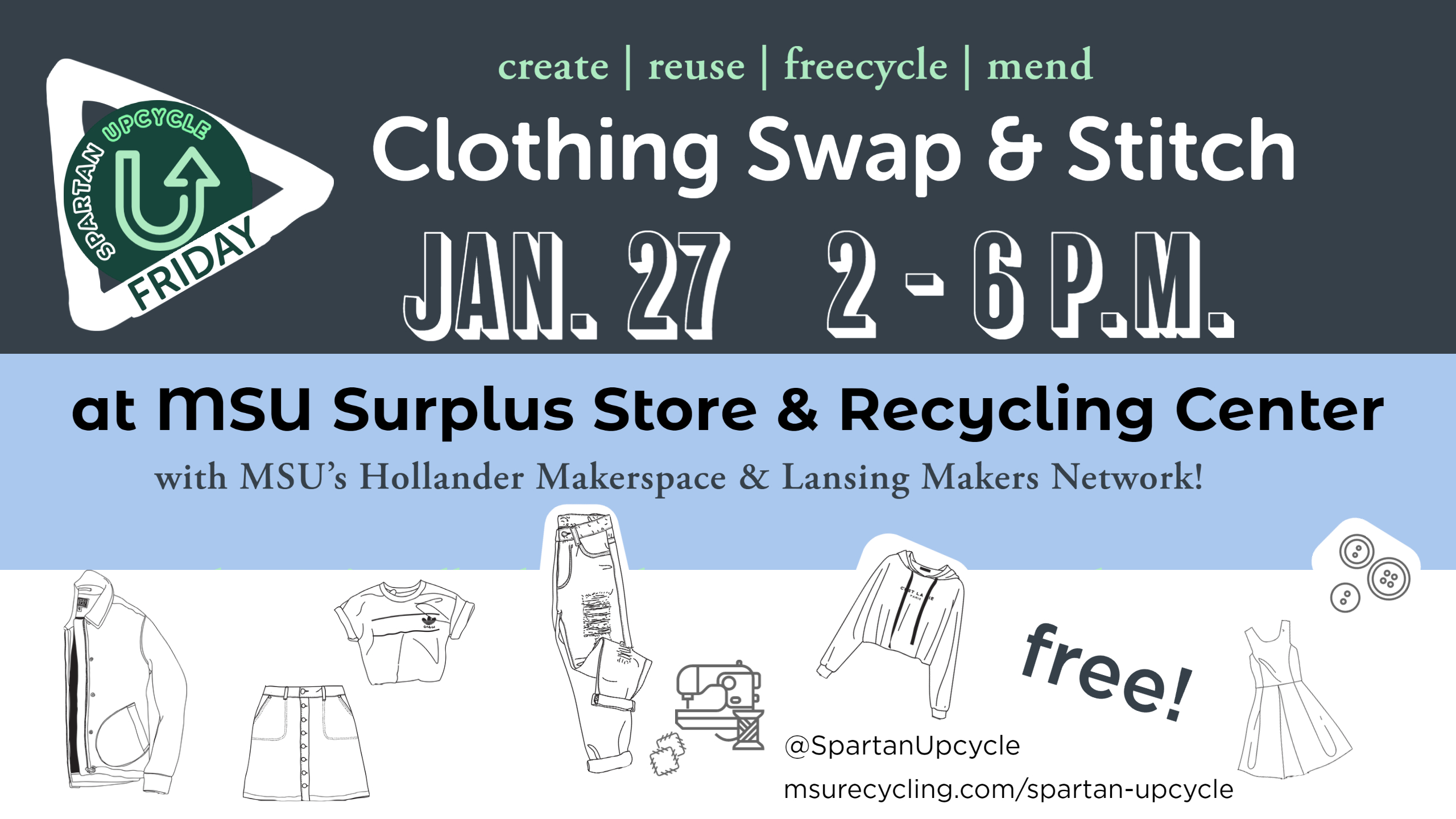Find Your Sustainable Style at the Clothing Swap & Stitch
Posted by Spartan Upcycle on Jan 25th 2023
Practice reuse and explore ways to make clothing last longer at the Clothing Swap & Stich this Friday, Jan. 27, from 2 - 6 p.m. at the MSU Surplus Store & Recycling Center. During this free clothing swap, browse through an assortment of donated clothes and select secondhand, new-to-you items. Plus, explore ways to upcycle unwanted textiles.
Spartan Upcycle will be joined by MSU's Hollander Makerspace and the Lansing Makers Network, who will demonstrate ways to mend and reimagine tattered and unwanted clothes. The Surplus Store will donate a bundle of clothing to “sweeten” the swap pile, but if you have items to donate, please bring them. All are welcome to participate regardless of if or how many items you donate. Sign up for this free event is encouraged.
If you can, arrive early to shop at the Surplus Store during the bulk clothing sale -- happening the same day, Fri. 1/27, until 3:30 p.m. Secondhand bulk clothes are priced at just 50 cents per pound!
The Clothing Swap & Stitch contributes to the mission of the MSU Surplus Store & Recycling Center, which is to manage MSU's waste as a resource. The Surplus Store receives donations of textiles year-round through the Community Reuse program and collects a large amount of clothing left behind each spring during student moveout.
So, why is it worthwhile to choose secondhand clothes? Doing so helps you live a lower waste life with a smaller carbon footprint.
The textile industry is energy intensive, heavy on chemical use and is a major source of air and water pollution. It's estimated that the apparel and footwear industries generate eight to ten percent of all global carbon emissions. Still, despite all it takes to manufacture clothes, they are ending up in landfills at a staggering rate. In 2018 in the U.S. alone, landfills received 11.3 million tons of textiles from municipal sources (accounting for almost eight percent of all municipal solid waste). While some textile recycling and other recovery pathways exist, these options can't keep up with the supply of unwanted clothes. This is partly due to the increase in clothing production, which has doubled since 2000, with 150 billion new clothing items produced annually. You may wonder if the production is simply responding to consumer demand, but with the cheap prices associated with fast fashion, is the market inviting overbuying? In any case, the average consumer buys 60% more items of clothing than just 15 years ago.
In the spirit of going green, let's keep our Spartan style sustainable. Reuse when possible and join us this Friday for the Clothing Swap & Stich!
To learn more about textile-related issues, explore the clothing section of the Environmental Justice and Sustainable Purchasing guide, and check out the upcoming talk hosted by the MSU Museum on Sustainability in Fashion & Textiles.
For info on other Spartan Upcycle events, visit msurecycling.com/spartan-upcycle. Create more, waste less!

